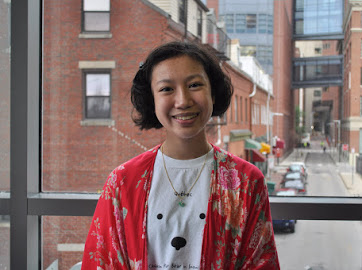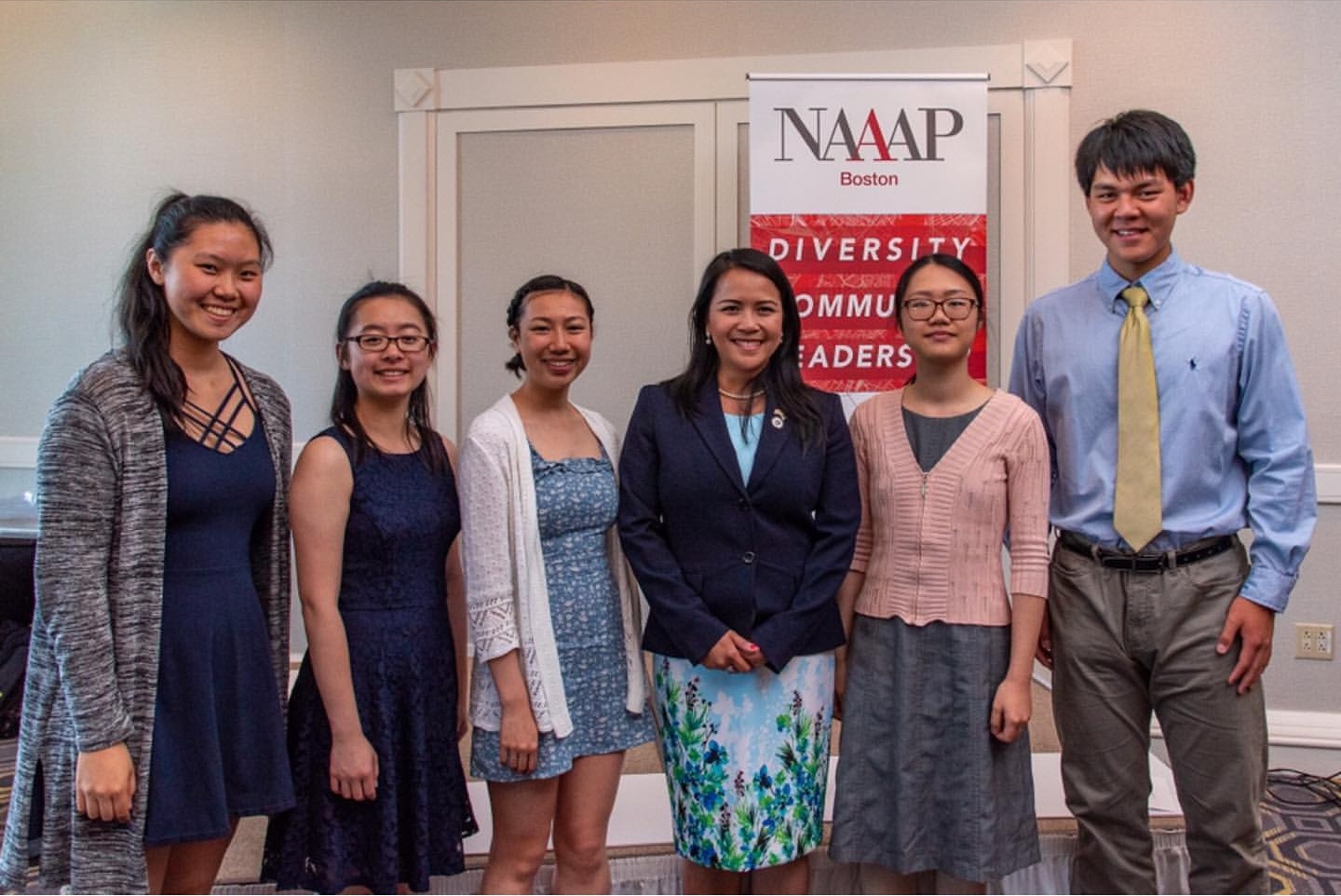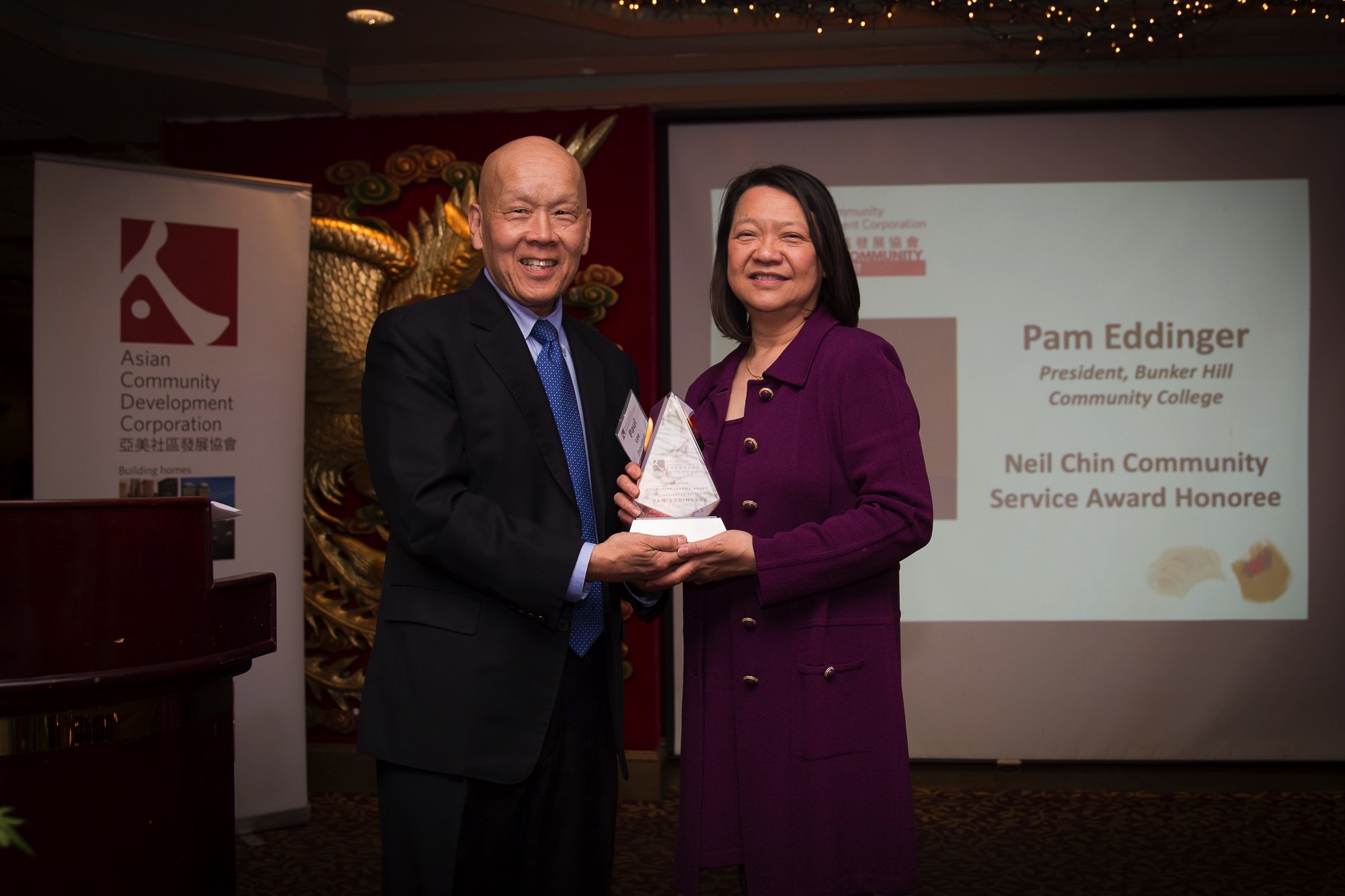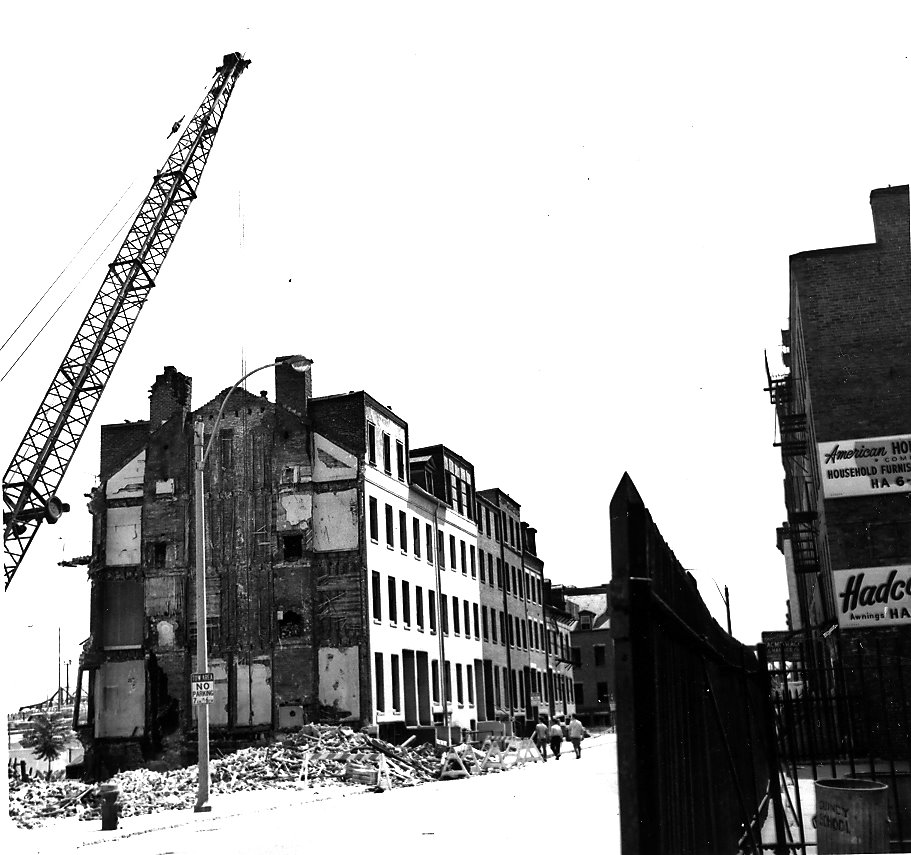Cindy Tsang, A-VOYCE alum and recipient of the NAAAP Future Leaders Scholarship
Cindy Tsang, a first-generation college student, will be attending Barnard College in the fall as an urban planning major. I was so thrilled to find out that she was a recent recipient of a NAAAP scholarship, which celebrates and recognizes Asian youth who demonstrate a strong commitment to serving the community.
I met Cindy Tsang last summer during A-VOYCE summer leadership academy. She and I had both gone through the A-VOYCE program and came back as youth coordinators, facilitating workshops for Asian high school youth about civic engagement, Chinatown history, and activism. Although we had only spent a few months together, we quickly grew close. Cindy is a bright, passionate, and intelligent young woman who I think of as my sister.
Paul Lee, who also happens to be ACDC’s Board President and a co-founder, created the The Richard and Chou Lee scholarship with his family. Paul Lee, Of Counsel and former Partner at Goodwin Procter LLP in Boston and has served the Asian community for decades, serving on numerous boards and advocating for community needs. In 2009, Lee was named a NAAAP 100 Leader for his community service and leadership in the Asian American community. Lee, the son of Chinese immigrants, Richard and Chou Lee, presented the NAAAP Boston Future Leaders Scholarship to Cindy Tsang on June 15, 2019.
I had the opportunity to interview both Cindy Tsang and Paul Lee about the role of community engagement in the Asian American experience.
Selina Li: Tell me about the community work you have done so far.
Cindy working with A-VOYCE youth as youth coordinator to draw a “river map”- a representation of their life experiences during 2018 summer leadership academy
Cindy Tsang: “In the summer before my sophomore year, I joined Quincy Asian Resources Inc. (QARI) and I worked on their August Moon Festival as a decorations volunteer, a team member during the festival, and a marketing volunteer. After that, I took on a leadership role as a QARI youth representative for two years where I continued organizing the festivals, but more focused on managing logistics for the events.
I was introduced to ACDC in the summer of 2017, when I joined their Summer Leadership Academy (SLA). I learned a lot about gentrification and urban planning. SLA inspired my independent capstone project where I researched how gentrification in Chinatown impacted the demand for affordable housing in Quincy.
Last summer, I interned with ACDC to help run the SLA program and I also was elected by my peers to serve as a youth board member at QARI where I mentored other Asian American youth in leadership, helped with civic engagement efforts, and raised awareness about mental health in the AAPI community.”
SL: Wow, you did a lot in high school! Do you think that your community work in high school influenced your future aspirations?
CT: “Working with the community definitely shaped who I am now. Going into high school, I thought I wanted to be a doctor or a nurse, but I realized that I don’t like blood, haha. Being in community-oriented spaces and spaces that empowered youth helped me realize that I really like helping other people and serving the Asian American community. It was empowering to receive mentorship through the programs I joined, to have people believe in me and my potential as a person, as a leader, as a community member. ACDC also introduced me to urban planning and the process of working with the community!”
SL: What did it feel like to be awarded this scholarship?
CL: “Just thinking about my growth as Asian American and my struggle with my identity, I used to not be proud of my identity--of being Asian American. But now, I feel a sense of community acceptance and inclusion, and I feel happy that I am seen as a leader.”
SL: What would you like to say to the Lee family?
CL: “To the Lee family and to the NAAAP scholarship committee, thank you so much for this opportunity, especially with being first generation and an Asian American woman. It’s really heart-warming and encouraging to know that people believe in me and my potential to be a leader in the Asian American community, and I’m really grateful for all the support and for all the time that everyone spent listening to my story.”
Cindy Tsang at the NAAAP Future Leaders Scholarship Event with State Representative Tram Nguyen and four other NAAAP scholarship recipients
Photo courtesy of NAAAP website; by Raj Das at ED Photography.
Selina Li: Who is the scholarship named after?
Paul Lee: “The scholarship was named after my father and my mother, Richard and Chou Lee.”
SL: Why was there a scholarship fund established to honor them?
PL: “We created the fund because education was really important to my parents. They recognized that as first-generation immigrants, education was the key to advancing, not only for them but especially for their children. They worked hard towards this goal. My father worked in a Chinese restaurant six days a week, and my mother worked at a sewing factory to put us through school so that we could get an education. That was always the top priority in our family, that the kids get an education. They really helped us do well in our careers. It was really the key for our family to achieve the American Dream. So, that’s why we wanted to honor their memory, we wanted to establish a scholarship fund to help other immigrant families advance their education.”
SL: Who would you want this scholarship to benefit specifically?
PL: “Our vision is to support students from an immigrant family--someone who is the first in their family to go to college. It’s also important that the individual is active in Chinatown or another Asian community doing community work. We also wanted to prioritize this opportunity for those who need the financial support, so that the scholarship makes difference in alleviating some of the financial burden.”
SL: How would you want this scholarship to impact youth? Specifically, first generation Asian American youth.
PL: “Well, it’s really helping them pay for college because college is so expensive now. If this can give them extra money so they can take full advantage of everything that college life has to offer, then they can really experience the college environment and really grow--that’s how we can help folks.”
SL: How do you hope recipients of the scholarship use the scholarship in their own lives?
PL: “I hope that they continue to be active in the community, to continue to look at the needs of the community, and advocate for whatever services are needed. [I hope] that they will be leaders and that they will try to mobilize and rally people. What we really like about the fact that the last few scholarships have been awarded to A-VOYCE youth, is we know that ACDC's program emphasizes leadership and civic engagement. We couldn’t be happier.”
SL: Why do you think that it’s important, especially in this current political environment and with the issues impacting Asian Americans, that it’s important for youth to have this leadership skill and to be engaged with the community?
Paul presenting ACDC’s Neil Chin Community Service Award to Pam Eddinger, community advocate and President of Bunker Hill Community College (who is also a Barnard alum!)
Photo by Black Dog Pictures
“When you go to college and you make friends, you tend to do what they are doing. What I would like is for folks to remember that whatever they do--whether they devote their careers to public service or a non-profit service or community service, or if they go into the business or corporate community--that they remember their obligation to the community.
So, while I was a corporate lawyer, I also did a lot of community work when I had time. That was a little bit unusual because most people in the corporate world, they don’t do as much community work, but that was something important to me. What I hope is that the students who get this scholarship have a successful college experience and come out of it with a renewed sense of their commitment to the community.”
SL: Do you have anything you would like to say to the youth who are receiving this scholarship, or any advice that you would like to give them?
PL: “The current and previous recipients have already shown such a strong commitment and dedication to the community. My advice is to just keep doing it--maintain that commitment and don’t get diverted from it. There are a lot of things that you can do and you can definitely explore in college, but also remember who you are and the kind of person that you want to be and hopefully you are the kind of person who wants to help others.”
Cindy Tsang with Mary and Paul Lee during ACDC’s senior send-off celebration
Photo by Will Ge
Thank you to Paul and Cindy for this opportunity to learn more about both of you and your respective dedication to supporting the community. Congratulations Cindy on your accomplishments! We look forward to continuing to educate and empower youth through our A-VOYCE program, so that they can be leaders in their own community.





















